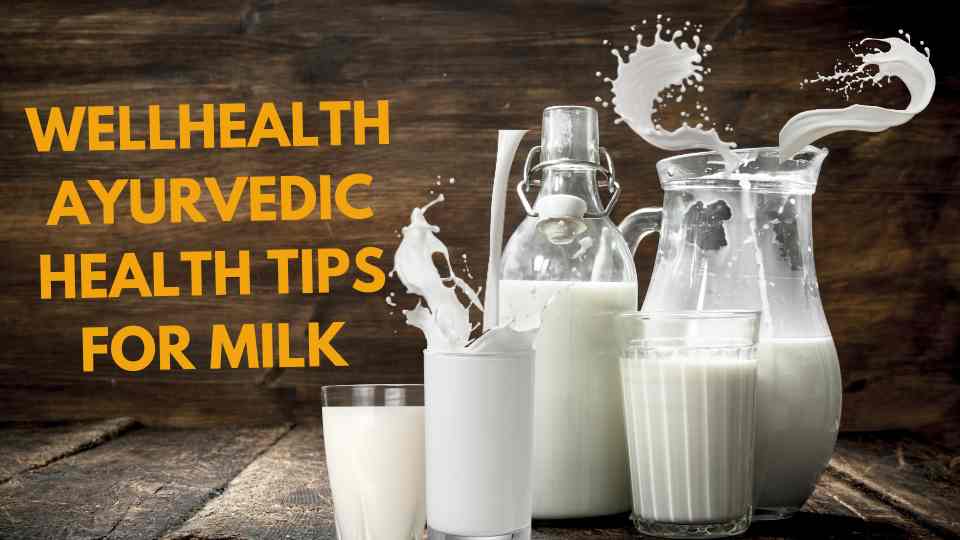well health ayurvedic health tips for milk With approximately 8 grams per cup, milk serves as a valuable protein source essential for repairing body tissues and maintaining or building lean muscle mass. A protein-rich diet can improve wound healing and potentially boost muscle growth while aiding in weight loss. Those aiming to shed pounds should choose skim or low-fat milk options and monitor their overall daily calorie intake when opting for full-fat milk.
1 Enhances Your Heart Health Well-being well health ayurvedic health tips for milk
Understanding how milk affects heart health can be complex due to conflicting evidence. Remember the era when low-fat diets were popular, and skim milk was the go-to choice? This historical context has contributed to the confusion. Fortunately, we now recognize the importance of fat in a balanced diet. However, the relationship between milk and heart health remains nuanced.
Some studies suggest that dairy products, possibly due to their potassium content, lower the risk of stroke, cardiovascular disease, and hypertension. Conversely, other studies indicate a higher stroke risk associated with milk consumption, primarily due to saturated fat content. Moreover, numerous studies find no significant correlation between milk consumption and heart disease. So, what does this mean?
Overall, recent research suggests that milk has either a slightly beneficial or neutral effect on heart health. Like any other food, enjoy it in moderation if it suits your taste.
2 Promotes Relaxation well health ayurvedic health tips for milk
Consider enjoying a warm glass of milk before bedtime. Dairy milk contains a small amount of tryptophan, an essential amino acid that stimulates the production of both melatonin, aiding in sleep, and serotonin, boosting mood. The high-quality proteins found in milk, such as whey and casein, help you feel full and satisfied, preventing bedtime hunger.
3 Enhances Bone and Dental Health well health ayurvedic health tips for milk
Calcium is crucial for maintaining strong bones and teeth, as well as reducing the risk of stress fractures. Increasing your calcium intake can be easily achieved by consuming more dairy milk, cheese, yogurt, and other dairy products. In fact, dairy serves as the primary source of calcium for the majority of Americans.
4 Enhances Your Immunity well health ayurvedic health tips for milk
Increase your intake of milk to bolster your immune system. Dairy milk, rich in essential nutrients, provides a powerhouse of immune-boosting vitamins and minerals including protein, vitamin D, vitamin A, zinc, and others. Click here to discover five effective ways to enhance your immune system.
5 You Can Achieve Your Weight Loss Goals
Misconceptions abound regarding how drinking milk influences weight, but evidence indicates that regular consumption likely won’t hinder weight loss efforts. This is largely due to milk’s combination of carbohydrates, protein, and fat, which contribute to its satisfying nature.
Protein and fat content in milk promote satiety, aiding in weight loss efforts. Carbohydrates provide energy, supporting optimal bodily function. Feeling satisfied from the foods you consume makes it easier to manage hunger and adhere to a healthy eating pattern.
A meta-analysis of randomized controlled trials, considered the gold standard in research, published in the journal Nutrients, revealed that including dairy in a calorie-restricted diet resulted in greater weight and fat loss while minimizing loss of lean muscle mass. However, milk isn’t a miraculous weight-loss solution.
Another review found that milk consumption didn’t lead to significant weight loss but also didn’t contribute to weight gain. If your goal is weight loss or maintenance, incorporating a glass of milk into your daily diet might assist, especially if it’s a food you enjoy.
6 Enhancement of Bone Health Possible
Milk not only serves as an excellent vegetarian protein option but also contains abundant calcium and vitamin D, essential for maintaining optimal bone health. Calcium is crucial for building and sustaining strong bones, while vitamin D facilitates calcium absorption from our diet. Given that milk is rich in both these nutrients, it remains one of the top dietary choices for promoting lifelong bone health.
Nutritional Information of well health ayurvedic health tips for milk
One 244-gram cup of whole milk with 3.5% to 3.8% fat contains:
- 149 calories
- 7.9 grams of fat
- 7.7 grams of protein
- 12.3 grams of sugars
- 276 milligrams of calcium
- 205 milligrams of phosphorus
- 322 milligrams of potassium
- 3.2 micrograms of vitamin D
In comparison, one 244-gram cup of nonfat or skim milk contains:
- 83 calories
- 0.2 grams of fat
- 8.2 grams of protein
- 12.4 grams of sugars
- 298 milligrams of calcium
- 246 milligrams of phosphorus
- 381 milligrams of potassium
- 2.9 micrograms of vitamin D
Read More Blog Posts HERE
Subscribe to My YouTube Channel HERE

